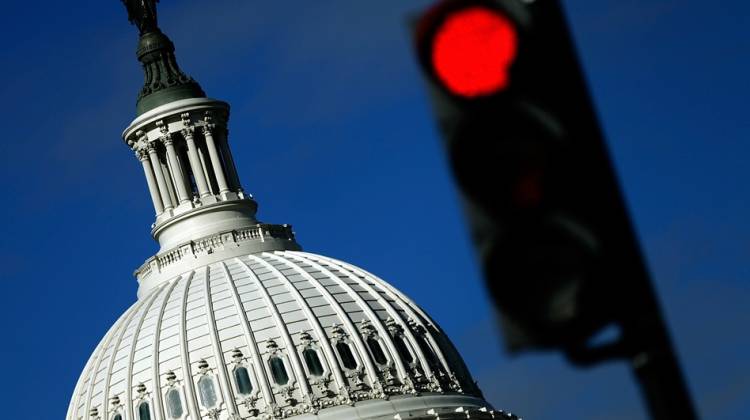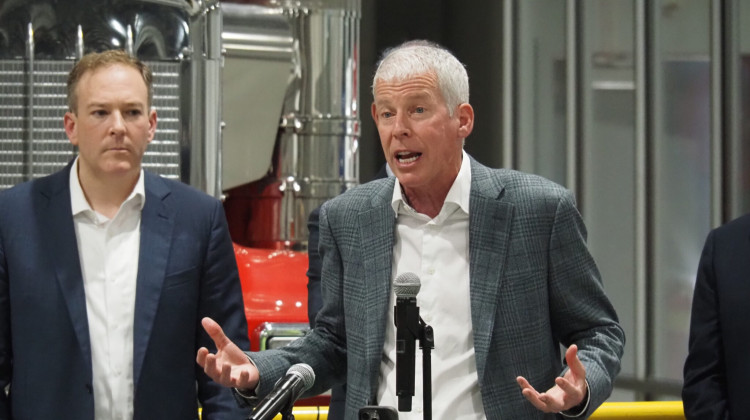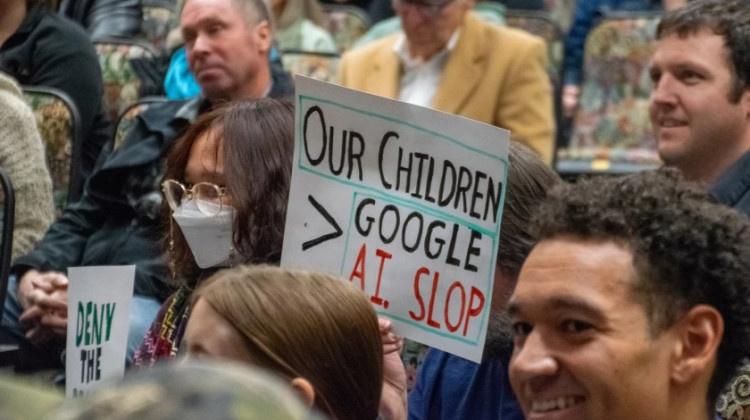We probably don't need to tell you that it's almost certain there will be a partial shutdown of the federal government just after midnight Monday.
But we do want to lay out the day's agenda.
As The Two-Way, It's All Politics and other NPR outlets have been reporting for weeks, the Republican-led House is insisting that legislation to fund government operations include provisions to either defund (the GOP's first suggestion) or delay (its latest) the rest of President Obama's Affordable Care Act.
The Democratic-led and equally insistent Senate has already rejected the GOP's first suggestion. It's poised to reject the second later today. The White House has also said President Obama would veto any legislation that includes language scuttling Obamacare.
This is all happening with an important deadline looming. As USA Today reminds its readers, "the new fiscal year starts Tuesday, Oct. 1, so a bill to fund the government must be passed by both chambers in Congress and signed by Obama by midnight tonight."
The Senate is set convene at 2 p.m. ET Monday. The Associated Press writes that "Majority Leader Harry Reid, D-Nev., is expected to quickly move to kill the House legislation, a step that is not subject to a filibuster and permits majority Democrats to easily dispatch it."
Once the House legislation is killed, the Senate is then expected to pass a so-called clean bill that would keep the government running, but not touch Obamacare — putting the ball back in the House's court.
And if House Republicans follow through on what they've said they'll do, they again won't go along with what the Senate wants. It's likely midnight will arrive and no agreement will have been reached.
Then what?
Here's how our friends on the NPR Newscast desk describe what will happen:
Hundreds of thousands of federal workers would be furloughed. Only what the government considers to be "essential services" would continue.
Among those essential services: homeland security, NASA's support of the International Space Station and day-to-day necessities such as weather forecasting, mail delivery, air traffic control and distribution of Social Security and Medicare benefits. Federal courts would also likely stay open for at least two weeks.
But the non-essential services that would be suspended would include: museums, tax audits, loan processing by the Federal Housing Administration and — except in emergencies — federal occupational health and safety inspections.
For more on what a shutdown would be like, check:
-- "8 Things To Know About A Government Shutdown." (It's All Politics)
-- "Impact Of A Government Shutdown." (The Washington Post)
9(MDEwMDc1MzM3MDEzNDczOTA0MDc1MzViMQ001))
 DONATE
DONATE









 Support WFYI. We can't do it without you.
Support WFYI. We can't do it without you.